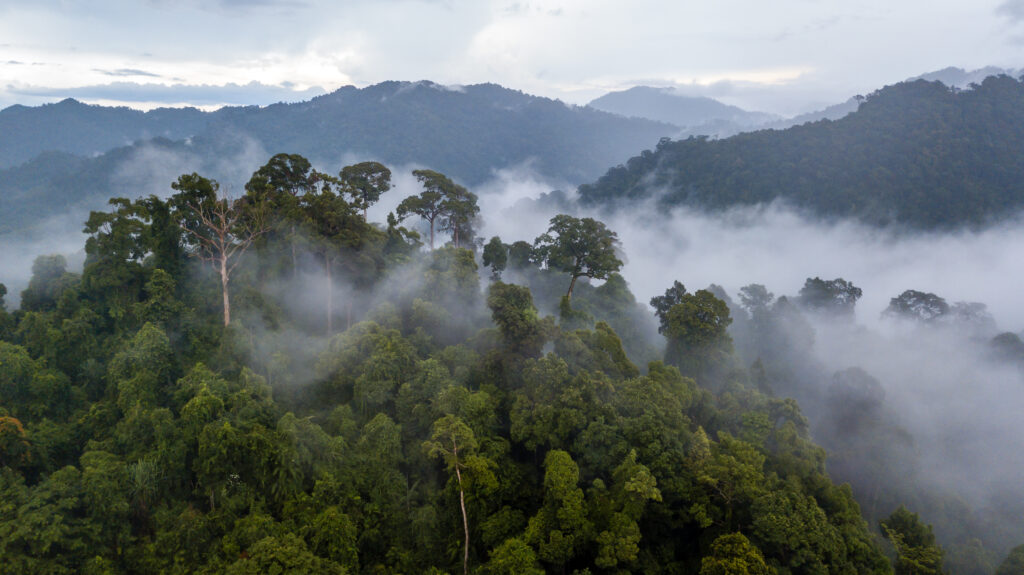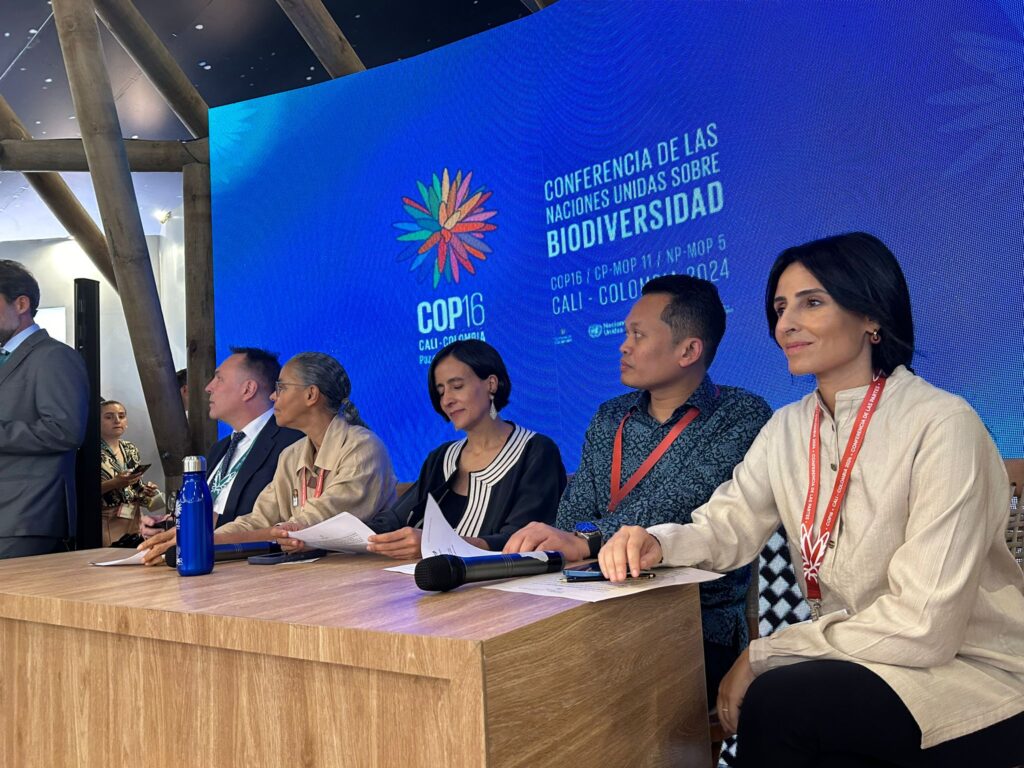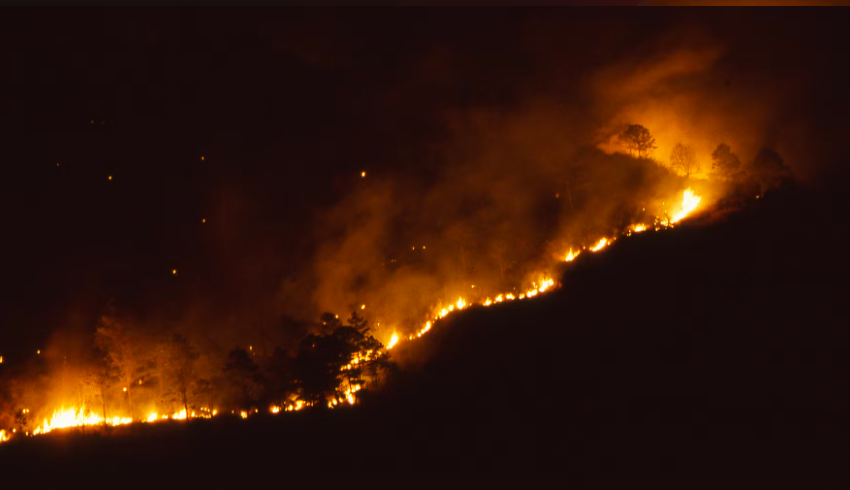Ethiopian coffee should return to the shade
When you think of Ethiopia, you think of coffee. Ethiopia, the birthplace of Arabica coffee, is one of the few places on Earth where this cherished crop still grows wild in forested areas like Kafa-Yayu and the Bale Mountains. However, the country’s natural forest cover has dwindled to just 3% of its land area, a drastic decline from approximately 40% at the beginning of the 20th century.
The country’s remaining forests are highly fragmented and continuously degraded, This alarming forest cover reduction threatens not only wild Arabica coffee but also numerous rare, endangered, and endemic species. The pressures driving this deforestation include population growth, poverty, and large-scale agricultural expansion, often funded by international investors in large-scale agriculture. Adding to these challenges, climate change has brought erratic temperatures and extreme weather, further jeopardising Ethiopia’s remaining forests.
Ethiopia’s population has skyrocketed over the past century – from 47 million in 1990 to over 120 million today – placing immense strain on the country’s natural resources. In response, forest conservation has become a national priority. In 2019, the Ethiopian government launched the Green Legacy Initiative, an ambitious reforestation programme. Over its first four years, this initiative mobilised 20 million citizens to plant more than 25 billion seedlings. It has garnered significant support from international donors, including the EU and DANIDA, reflecting the urgency of restoring Ethiopia’s forests.
Forests of the World (Verdens Skove) collaborate with local partners to empower communities safeguarding Ethiopia’s forests. By promoting sustainable agroforestry practices for coffee among other crops, we aim to protect the environment while improving the livelihoods of those living near forested areas.
Forests of the World (Verdens Skove) in Ethiopia
Since 2017, Forests of the World (Verdens Skove) has focused on promoting agroforestry and sustainable forest utilisation in Ethiopia. By encouraging communities to derive greater value from products like shade-grown coffee, we offer an alternative to deforestation, fostering conservation while supporting livelihoods.
Our initiatives include practical training for small-scale farmers in agroforestry techniques, improving the quality and yield of coffee beans, and establishing cooperatives for smallholder farmers. We also explore the commercial potential of traditional by-products, such as coffee bush leaves, and work alongside partners like NABU Ethiopia, Farm Africa, CCC-E and Ethio Wetlands to combat climate change and promote sustainable development.
A significant milestone in our work has been introducing FSC (Forest Stewardship Council) certification to Ethiopia. This globally recognised certification system promotes sustainable forest management, enabling operators to achieve higher economic returns while adhering to strict environmental and social standards.
Our latest initiatives in Ethiopia

Agroforestry and cooperatives
In Ethiopia, we support farmers and cooperatives in practicing agroforestry in buffer zones around forests and in corridors that connect forests and wildlife habitats. While agroforestry is not technically forest land, it is one of the most sustainable forms of land use, addressing many challenges that farmers face, including soil erosion and depletion. Additionally, our models always emphasise intercropping—growing multiple types of crops together—so that farmers are better prepared for poor harvest seasons for individual crops and resilient to climate change.
Women’s groups in Ethiopia challenge gender roles through economic communities
In Ethiopia, it is difficult for women to achieve the same level of independence and resilience as men when they lack equal opportunities to earn an income. Women’s roles in society typically involve cooking for their families, caring for children, and fetching water, and they often assist in harvesting crops. However, it is usually men who own land, allowing them to cultivate various crops or run agroforestry systems with coffee production. To address this, Forests of the World (Verdens Skove) supports six dedicated groups of women in the Bale region to help them gain greater independence through savings and loan communities. These economic communities provide the women with both health insurance and opportunities to earn their own income—a privilege rarely accessible to women otherwise.


Forest monitoring to protect forests
Forests of the World (Verdens Skove) has initiated a project in southwestern Ethiopia aimed at making forest protection against threats such as illegal logging and land conversion for agriculture more effective. The project focuses on the digital collection of forest monitoring data to help safeguard the region’s forests. Locals are involved in joint data collection, creating a closer connection between the decisions made by authorities and the people who use and care for the forests. Members of local forest management groups are trained in the use of digital tools to better monitor and protect the forests.
Forests of the World´s partners in Ethiopia

NABU Ethiopia
NABU and Forests of the World (Verdens Skove) have collaborated in Ethiopia since 2018, initially with NABU Deutschland, Germany’s largest nature conservation organisation, and from 2023 with NABU Ethiopia as an independent NGO. The partnership focuses on establishing agroforestry in the Kafa region of southwestern Ethiopia.

Farm Africa (FA)
Farm Africa’s expertise in Participatory Forest Management (PFM) makes them a valuable partner. Together, we have developed agroforestry and forest management solutions that have been adopted by provincial governments across Ethiopia, strengthening conservation efforts and improving community resilience.

Ethio Wetlands and Natural Resouce Association
Founded in 2000, EWNRA is dedicated to sustainable resource management and environmental protection. The organisation focuses on poverty reduction, ecosystem resilience, and sustainable development while adhering to core values like equality, transparency, and sustainability.
Consortium for Climate Change Ethiopia
CCC-E is a network of over 30 organisations working in climate, environment, and natural resource management. Established in 2009, CCC-E promotes climate-resilient development through advocacy, capacity building, and knowledge-sharing. Our collaboration emphasises empowering young climate advocates and advancing joint initiatives for sustainable development.



